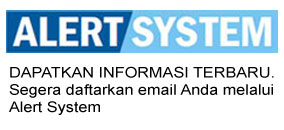COVID-19 pandemics had caused an uproar in all countries throughout the world. One of the challenges that had risen is to ensure fair and equitable services to the vulnerable population during the COVID-19 crisis. The webinar held this time had invited three panelists to discuss the issue.
Public Health Interventions Coupled with Economical Intervention
The first panelist is delivered by Jeremy Lim from Singapore, a Co-Director of Global Health at National University of Singapore Saw Swee Hock School of Public Health. Jeremy discuss the approach Singapore had taken to tackle the problem arise from COVID-19. The vulnerable groups in Singapore could take in a form of being an elderly that live alone or apart from family, self-employed people, and migrant workers. The approach taken compromise of four principles. The first principle is to ensure essential services still be able to continue to work, allowing the society to function in term of lifestyle as normal/tolerable as possible. The second principle relies on government to plan each action need to be taken to handle the pandemic, where the ramification toward the economy or an individual caused by the outbreak can be spread out over the course of time and subsequently minimize the magnitude of the consequences in a single point of a period. The third principle acknowledge the requirement of the citizen to go through hardship, where businesses are closed, people are forbidden from going out and other many financial hardships. To encourage the compliance of the citizen toward public health intervention, economy rescue package is essential. The last principle is to ramp up health care capacity progressively, to anticipate the effect of 2nd wave outbreaks.
Jeremy had highlighted the importance of the public health intervention that is coupled with economical intervention. In the current situation, the two intervention should be applied in parallel, ensuring the ability of the population to fulfil the daily necessity such as buying food or paying the rent, otherwise the compliance to health intervention is compromised. The government approach is pro-poor. For example, stocks of mask are distributed to every household for free especially at the start of the pandemic, masks priced were predicted to get more expensive, where the poor people will face difficulties getting them. In addition, the testing and treatment of COVID-19 will be provided free of charge in every level of socioeconomic status. Such decisions are taken not only limited to humanitarian concern, but also to encourage the poor population to seek medical attention without the fear of financial burden, minimizing undiagnosed or untreated patient that can further spread the disease. Furthermore, the accessibility of information is also ensured where all announcements related to pandemic are delivered in 4 official language, because not all population can speak English.
Tackling Equity
The next discussion is led by an epidemiologist expert Nyoman Kumara Rai. He suggested the actions that need to be done in order to tackle inequity. The solutions suggested includes establishing policy by the government; advocate that equity is a grave issue, other sector should strongly support; sufficient budget should be allocated to deal with the issue; more meeting between sectors should be done; and each sector confirms its commitment in allocated resources.
Vital Role Held by Community Organization
The last panelist was delivered by Mubasysyir Hasan Basri, Head of Department of Biostatistics, Epidemiology and Public Health, Universitas Gadjah Mada. He started off with a question: Who is the most vulnerable people in Indonesia that may have more disadvantages compare to others?
Indonesia is a huge country with various geographical terrain between regions. This geographical condition is in contrast with relatively smaller countries such as Singapore. Thus, the population of the vulnerable may be differ in comparison with Singapore, where the focus of the discussion was given to the households within rural areas, which are spread across Indonesia land. In Indonesia, issues surround equity can be approach from various level of governance, but it will be more advantageous to focus on the community level of organization, as national level have many barriers to tackle in term of the sheer size of the country and limited accessibility due to geographical constraints.
One neighborhood in Indonesia consist of 200-300 families in one kampong. And in those kampongs, there will be few families that are in low socioeconomic status and low educational level with limited resources and accessibility. With the case of COVID-19, such groups obtain their necessary resources from local association such as their neighbors and “pak RT” or “pak RW”. This fact can encompass all aspect of regions, from relatively developed cities such as Jakarta, Jogjakarta, or remote area in Indonesia. For example, within Jogjakarta the promotion in regard to social distancing had been given mostly by head of the neighbor, rather than the district level government. The local government may produce regulations, but the implementation is almost always done through bottom level of governance. Thus, the community organization hold major role to play in handling the vulnerable group of people during this period.
The professionals such as epidemiologists who are essentials in assessing the condition and impact of COVID-19 rarely went down to the bottom level of such communities. They usually questions about the status of COVID-19 through phone and do not further understand the dynamics of the societies. The people who are aware of such dynamics are the neighborhood organization. Therefore, solving inequity will require the involvement of the neighborhood organization which can be used as mediators of information and other means of help and interventions.
What’s unfortunate is that the neighborhood association have little to no power to implement their ideas or any other movement themselves. Moreover, the community lack in medium that allow transfer of information and situational reports between the households and the head of community. Thus, the formation of a system which enable the vulnerable population to express their needs toward the head of the community should be prioritized in Indonesia. Rapporteur : Eugeu Yasmin








